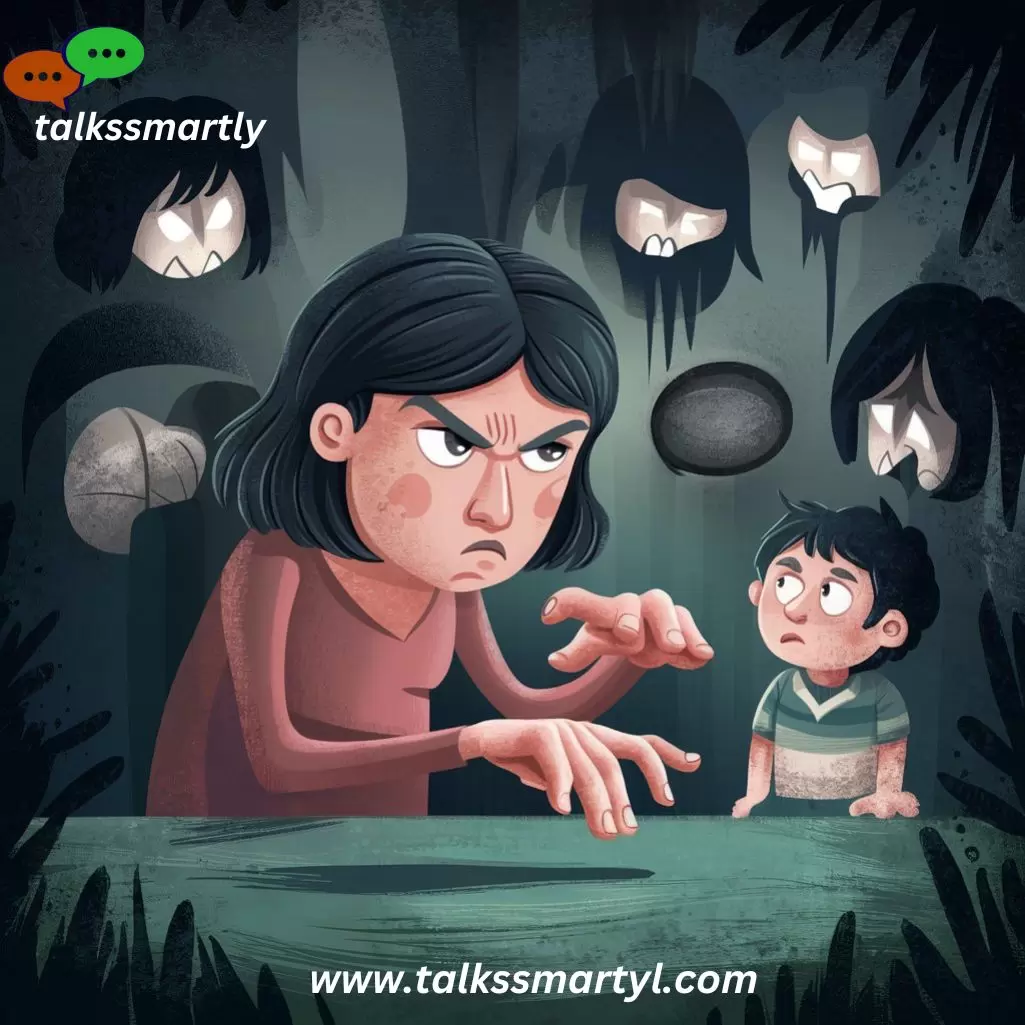Introduction
“Recognizing signs of maternal dislike is vital for bettering bonds, needing support to address issues.”
Having a strained relationship with a parent, especially a mother, can be incredibly challenging. While it’s natural for families to have disagreements and conflicts from time to time, there are certain signs that may indicate a deeper issue, such as feelings of resentment or even hatred.
In this article, we’ll explore 20 proven signs that your mother may harbor negative feelings towards you. It’s essential to approach this topic with sensitivity and understanding, as every family dynamic is unique.
Overview
The article delves into 20 signs indicating potential negative feelings a mother might harbor towards her child, emphasizing the importance of approaching the topic with sensitivity. These signs range from lack of affection to emotional abuse, underscoring their profound impact on a child’s well-being.
Recognizing these signs is crucial for addressing and potentially improving strained mother-child relationships, highlighting the need for support from trusted individuals or mental health professionals.
Acknowledging the uniqueness of each family dynamic, understanding these signs can pave the way for positive changes through open communication, empathy, and the willingness to address underlying issues.
Signs Your Mother Hates You
1. Lack of Affection
One of the most obvious signs that your mother may harbor negative feelings towards you is a lack of affection. This can manifest in various ways, such as avoiding physical contact, refusing to say “I love you,” or rarely expressing warmth or kindness.
2. Constant Criticism
If your mother constantly criticizes you, it could be a sign of underlying resentment or disdain. This criticism may be directed towards your appearance, behavior, achievements, or even your personality. Frequent nitpicking and disparaging remarks can chip away at your self-esteem and indicate deeper issues within the relationship.
3. Emotional Neglect
Emotional neglect is another sign that your mother may harbor negative feelings towards you. This can manifest as disinterest in your life, failure to provide emotional support, or dismissal of your feelings. Feeling emotionally neglected by a parent can lead to feelings of abandonment and low self-worth.
4. Favoritism
If your mother consistently shows favoritism towards your siblings or other family members, it may indicate underlying feelings of resentment towards you. Being treated unfairly or feeling like the least favorite child can be incredibly hurtful and damaging to your self-esteem.
5. Withholding Love or Approval
A mother who withholds love or approval can inflict deep emotional wounds on her child. This can manifest as rarely praising your accomplishments, ignoring your achievements, or refusing to acknowledge your efforts. Feeling unloved or unappreciated by your mother can lead to feelings of inadequacy and unworthiness.
6. Manipulative Behavior
Manipulative behavior from a mother can be a sign of underlying hostility or resentment. This can include guilt-tripping, emotional blackmail, or using affection as a bargaining tool. Manipulative tactics are often used to control or manipulate your behavior, leaving you feeling powerless and invalidated.

7. Gaslighting
Gaslighting is a form of emotional abuse where the perpetrator denies your reality or makes you doubt your own perceptions. A mother who gaslights may invalidate your feelings, rewrite history, or blame you for her behavior. Gaslighting can be incredibly damaging to your mental health and sense of self.
8. Lack of Empathy
A mother who lacks empathy may struggle to understand or validate your emotions. This can manifest as dismissive responses to your struggles or failure to offer support during difficult times. Feeling misunderstood or invalidated by your mother can exacerbate existing emotional wounds.
9. Constant Conflict
If your relationship with your mother is characterized by constant conflict and arguments, it may indicate underlying resentment or hostility. Frequent clashes can create a toxic environment that is detrimental to your emotional well-being.
10. Conditional Love
Conditional love from a mother can leave you feeling unworthy and unlovable. This can manifest as love or approval being contingent on meeting certain expectations or fulfilling specific conditions. Feeling like you have to earn your mother’s love can be emotionally exhausting and damaging to your self-esteem.
11. Passive-Aggressive Behavior
Passive-aggressive behavior is a common sign of underlying resentment or hostility. This can manifest as sulking, giving the silent treatment, or making snide remarks. Passive-aggressive behavior is often used as a way to express anger or frustration indirectly.
Read More: Best Response to “Where You At”
12. Lack of Boundaries
A mother who fails to respect your boundaries may disregard your autonomy and individuality. This can manifest as intrusive behavior, violation of privacy, or disregard for your personal space. Feeling like your boundaries are constantly being violated can erode trust and damage the relationship.
13. Emotional Manipulation
Emotional manipulation is a tactic used to control or manipulate your behavior through guilt, fear, or obligation. A mother who employs emotional manipulation may use tears to elicit sympathy, threaten to withdraw affection, or play the victim. Recognizing and setting boundaries with a manipulative parent is essential for preserving your emotional well-being.
14. Lack of Support
A mother who fails to support you emotionally, financially, or otherwise may harbor negative feelings towards you. This can manifest as failure to attend important events, refusal to offer help or advice, or lack of encouragement. Feeling unsupported by your mother can leave you feeling abandoned and alone.
15. Undermining Your Confidence
If your mother consistently undermines your confidence or self-esteem, it may indicate underlying hostility or resentment. This can manifest as criticizing your abilities, doubting your decisions, or discouraging you from pursuing your goals. Feeling like you can’t trust your own judgment can be incredibly damaging to your self-esteem.
16. Emotional Distance
Emotional distance between you and your mother can be a sign of underlying resentment or hostility. This can manifest as rarely engaging in meaningful conversations, avoiding spending time together, or keeping secrets. Feeling emotionally distant from your mother can exacerbate feelings of loneliness and isolation.

17. Scapegoating
Scapegoating occurs when one family member is blamed for the problems or conflicts within the family. If you find yourself constantly being blamed for issues within the family, it may indicate underlying resentment or hostility from your mother. Scapegoating can be incredibly damaging to your self-esteem and sense of self-worth.
18. Lack of Interest in Your Well-Being
A mother who lacks interest in your well-being may prioritize her own needs or desires above yours. This can manifest as failure to inquire about your life, disregard for your feelings, or neglecting your needs. Feeling like your mother doesn’t care about your well-being can be incredibly hurtful and damaging to your self-esteem.
19. Emotional Abuse
Emotional abuse is a serious form of mistreatment that can have long-lasting effects on your mental health and well-being. This can include verbal insults, belittling comments, or threats. If you are experiencing emotional abuse from your mother, it’s important to seek support from a trusted friend, family member, or mental health professional.
20. Feeling Unloved
Perhaps the most telling sign that your mother hates you is the pervasive feeling of being unloved. This can manifest as a deep sense of emptiness, loneliness, or worthlessness. Feeling unloved by your mother can have profound effects on your self-esteem and overall well-being.
Conclusion
In examining 20 signs that a mother may harbor negative feelings towards her child, it’s crucial to approach the topic with sensitivity. These signs encompass various behaviors, from lack of affection to emotional abuse, that can deeply impact a child’s emotional well-being.
Recognizing these signs is the first step in addressing and potentially improving the strained relationship between a mother and her child. It’s essential to seek support from trusted individuals or mental health professionals to navigate these complex dynamics and work towards healing.
Understanding that every family dynamic is unique, acknowledging these signs can lead to greater awareness and opportunities for positive change within the relationship. Ultimately, fostering open communication, empathy, and a willingness to address underlying issues is key to fostering healthier and more supportive familial bonds.

Hi, I’m Lauren Reynolds, owner of Talks Smartly.
We specialize in wishes, thank you messages, and thoughtful responses for all occasions.
Whether it’s a birthday wish or a heartfelt thank you, we’re here to make your messages shine.
Join us at Talks Smartly and let your words leave a lasting impression.”











